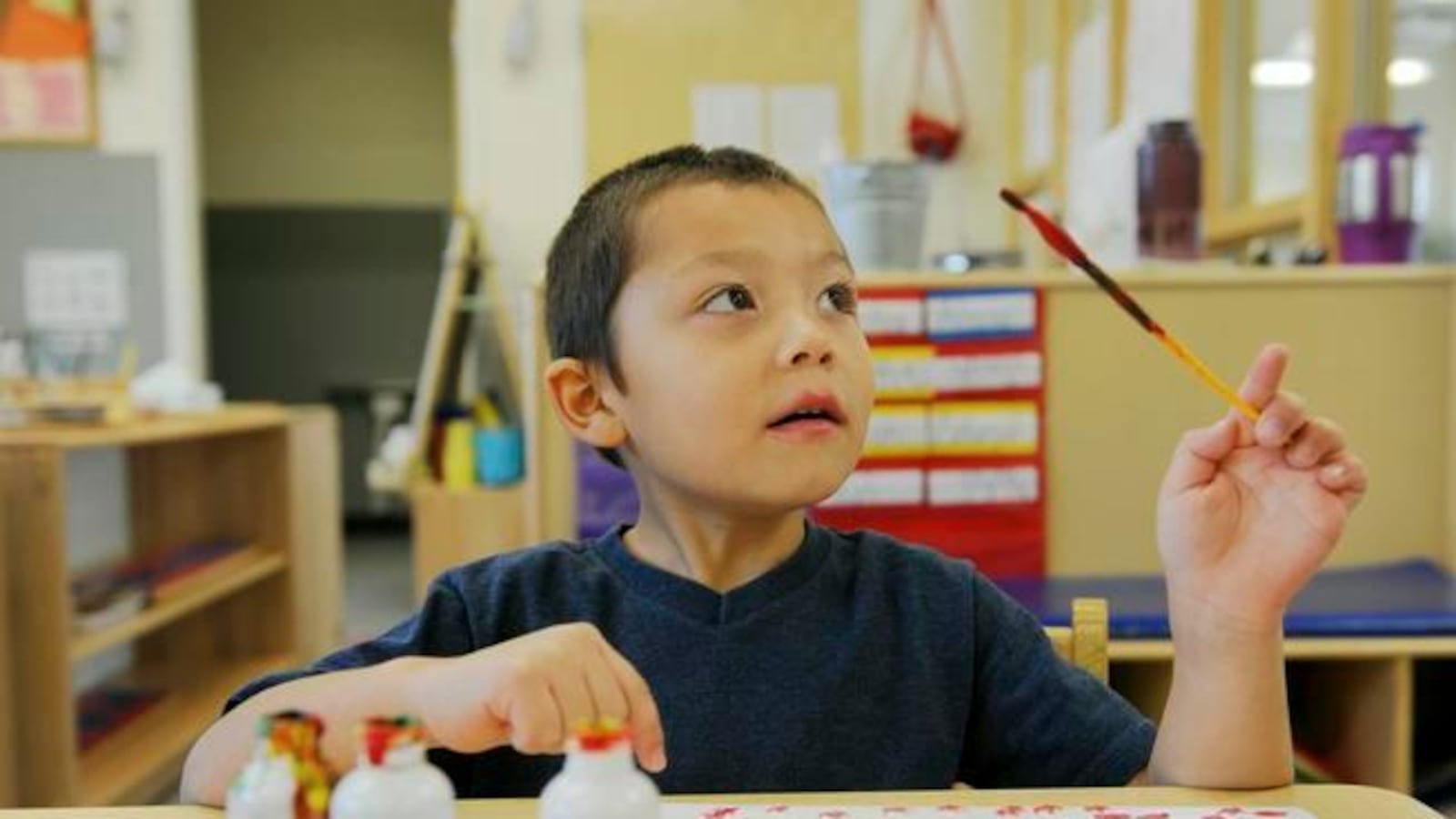Back in 2006, Denver voters passed a sales tax to help the families of 4-year-olds pay for preschool. It was a first for Denver and the state, eventually growing into a nationally recognized program that has served nearly 51,000 students.
Summit County, a resort community 80 miles to the west, will soon offer the same kind of preschool assistance to 4-year-olds, using proceeds from a new property tax approved by voters in November. Local early childhood leaders say the new effort, called Summit PreK, will help prepare kids for kindergarten and make it easier for their parents to stay in the workforce.
“We really want to provide some financial relief to our low- and middle-income families,” said Lucinda Burns, executive director of Early Childhood Options, the early childhood council in Summit County.
On its face, Summit PreK is a small local victory poised to help a few hundred children and families a year in one pricey ski resort community. But some observers see it as the latest success in a broader movement that could eventually lead to statewide preschool-for-all.
“In Colorado, it feels like it’s going to be a community-by-community strategy until we reach a tipping point,” said Jennifer Stedron, executive director of the nonprofit Early Milestones Colorado, which worked with Summit County leaders on Summit PreK’s design and cost modeling.
She said gov.-elect Jared Polis, who championed free universal preschool throughout his campaign, may sense that the tide is slowly turning in favor of a statewide effort.
Still, he’ll face some big obstacles in making his vision a reality. Colorado voters have repeatedly expressed skepticism about statewide tax hikes for education, most recently rejecting Amendment 73, which would have earmarked money for preschool among other things.
A recent report from the National Institute for Early Education Research at Rutgers University dinged Colorado for lacking the political will to make progress on publicly funded preschool, citing the state’s limited education budget and the constraints of the Taxpayer Bill of Rights, a constitutional amendment commonly known as TABOR.
Currently, the state funds half-day preschool for children from low-income families or with other risk factors, but there’s not enough funding to serve all eligible children. Most middle-class families, a group hit hard by child care costs and without access to most types of government assistance, don’t qualify.
For now, local initiatives hold the most promise in helping Colorado families across the economic spectrum pay for preschool. Besides Summit PreK and the Denver Preschool Program, Jeffco school district voters recently passed two tax measures that will help the district expand preschool programming, and in 2017, voters in the southwestern Colorado county of San Miguel passed a tax measure to improve local child care. More than a dozen other Colorado cities, counties, and school districts also earmark taxpayer money for early childhood efforts.
Growing interest in local early childhood tax measures could usher in a new state law next year. Cody Belzley, who leads the Denver-based Common Good Consulting, said that discussions among leaders in the Roaring Fork Valley have spurred plans to introduce a bill to create early childhood special districts.
Such districts would allow multiple municipalities or counties to join together to seek ballot initiatives for early childhood efforts. The bill died last spring after being introduced late in legislative session, but Belzley is optimistic the measure will win support next time.
In Summit County, the new preschool effort will draw heavily on the Denver Preschool Program model, both awarding tuition assistance on a sliding scale based on family income and giving extra money when families choose programs with higher ratings.
Burns, of the early childhood council, said tuition credits through Summit PreK will range from around $300 to $1,100 per month per child. The money will go directly to participating preschools.
Summit PreK will limit eligible preschool programs to those that have earned a rating of Level 2,3,4 or 5 on the state’s rating system, called Colorado Shines. Level 1 programs won’t be eligible to participate, though they will get help to improve their ratings.
Currently, 22 of 27 of Summit County’s licensed preschool programs have a rating of Level 2 or higher.
Unlike in Denver, where preschool funding came out of a narrow single-issue ballot measure — after two broader versions failed — funding for Summit PreK was part of a larger property tax measure that also included money for mental health, wildfire preparedness, recycling, and building improvements. The package passed easily.
Burns said both the county and its county seat, Breckenridge, have a track record of supporting early childhood efforts with public money.
She noted the average rent for a family of four in the county is $2,300 a month, the average cost of preschool is $1,300 a month and the average cost of health insurance is $500 a month.
“We call that the trifecta,” she said.
Tamara Drangstveit, who heads a family resource center in Silverthorne and co-chaired the campaign for Summit County’s ballot initiative, said, “Most of our voting block really understands the struggle of our working families.”
She’s personally familiar with the issue as the mother of an 8-year-old and of 3-year-old twins. She said she’ll be one of the parents applying for preschool tuition assistance through Summit PreK, which will roll out on a small scale this spring and more broadly next fall.
“It’s also not lost on me that, as a mom of twins, I’m spending more on their child care than [I will] on their college education,” Drangstveit said.

